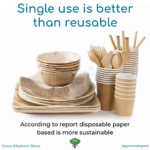What are Organisational Keystones?
Every organisation has Keystones, but they may not have called them that before. You could say that they are organisational assets instead. The problem with the term ‘assets’ is accountants will immediately think of items with a financial value and won’t include the more subtle elements used by a company to do business.
The MacMillandictionary.com defines “Keystone as:
“something that is very important to a plan, arrangement, or set of beliefs”
Therefore, a Keystone is a grouping of elements which are used in your organisation to do what you do. These Keystones need to be understood, properly used and appropriately protected.
Understanding your Keystones is important?
“Measurement is the first step that leads to control and eventually to improvement. If you can’t measure something, you can’t understand it. If you can’t understand it, you can’t control it. If you can’t control it, you can’t improve it.”
Drawing on that quote, if you want to grow your business you will need to improve what it does and how it does it. Some things may be obvious targets for improvement, but are they the most important and beneficial?
To be in ‘control’ of your organisation you need to ‘understand’ what makes it up. The Keystones are a logical grouping of elements that support your organisation. Keystone provide a structure, support prioritising and makes sure you’ve considered everything before starting your Initiatives for improvement.
An introduction to each Keystone
There is no particular order or hierarchy to the Keystones. That’s why they are arranged in a circle. That also shows that if all 7 Keystones are in place then the organisation will, naturally, be stronger.
So, to avoid any favouritism, let’s introduce each one in alphabetical order. A more detailed article on each Keystone is available by clicking on the “Learn more about…” button.
We are all Brand aware. McDonalds, John Lewis, Aldi, HM Government, Harrods. All these carry a picture in our heads and a perception which will vary wildly from one person to another.
You might think of logos, adverts, costs, failures and quality from this list – these perceptions contribute to an organisations Brand and reputation. In turn organisations use their Brand to promote wares, win followers or inspire spending. What makes your Brand?
It’s easy to think that the Contacts Keystone is a list of names and communication details in your address book. This organisational Keystone is far more detailed than that.
You may have business partners and there’s always the contacts you don’t have… yet. Add to that the statistics and techniques that are used to understand your market and you’ll be getting a fuller picture of Contacts.
Information is the lifeblood of every organisation. No organisation can exist without Information and it requires quite specific care and attention. All the more so with recent data protection legislation!
Information does not always get the respect and attention it deserves. Your organisation is generating Information every day, but is it accurate, reliable, up-to-date and legal? Information needs thought, care and maintenance – it is also a lot more than invoices, emails and reports.
The Intellectual Keystone is regularly misunderstood and underestimated. Also known as Intellectual Property, or IP, it might be more important than you think.
You may have a logo that has been designed for your organisation or product which you don’t want misused. Perhaps your family has been mastering a food over centuries and the recipe is only known to a few people. All these need protection and maintenance. And then there’s the Intellectual elements you use of other bodies…
Money is a central Keystone and, as one of the most regulated Keystones it certainly gets significant attention in most organisations. However, it is not all about cash in the bank, there are a large range of elements that make this one of the trickier Keystones to acquire, manage and keep.
Of course, it is very easy to pass off managing this Keystone to an accountant. But, Money is bigger than just accounting and it’s good to understand all aspects of this Keystone so that you take best advantage of it’s, sometimes fleeting, presence.
Physical will vary wildly for different organisations. It is possible to run an organisation on very few Physical elements, but that is rarely the case.
Some Physical elements can be referred to as ‘Fixed Assets’ in accounting terms. This Keystone encompasses far more than just those pieces of equipment or property which has significant financial value. Organisations need to focus on the larger Physical elements and the mass of equipment which is key in delivering the day to day activities and enabling the People.
Every organisation has People, even if that is just the Founder. Once there is any form of growth, the need to invest in the People Keystone very important.
There is so much more to the People Keystone than managing employees. It extends well beyond organisational recruits to include anyone that contributes to your success. It encompasses the skills, knowledge, experience, inclusion and happiness of all humans involved in delivering your activities to your Contacts.
Making the best use of your Keystones
Firstly it’s good to reflect on whether you truly know all of the elements that make up your organisation. Is one of the Keystones above a bit of mystery?
You can use our Free Keystone Priority Calculator to get an insight into what is most important to your organisation. You’ll be able to see a report on whether your view is balanced and then you can focus first on your number one Keystone.
Once you have that focus, then dive deeper into how you acquire, maintain and manage that Keystone. Consider the functions which encircle the Keystones in the Guardian (see below). This will lead to identifying the improvements you need to make to create a rapid impact on your business.












